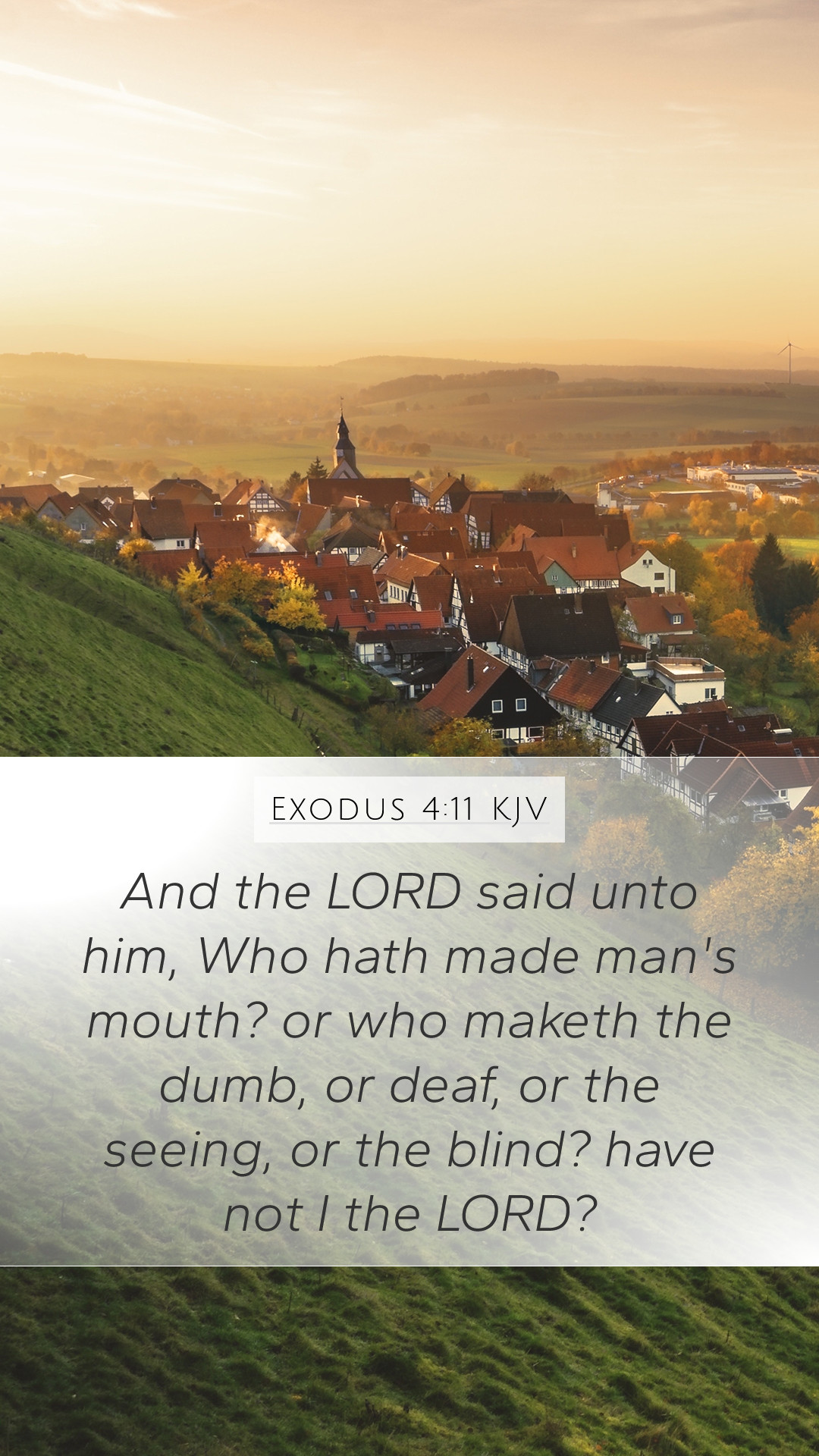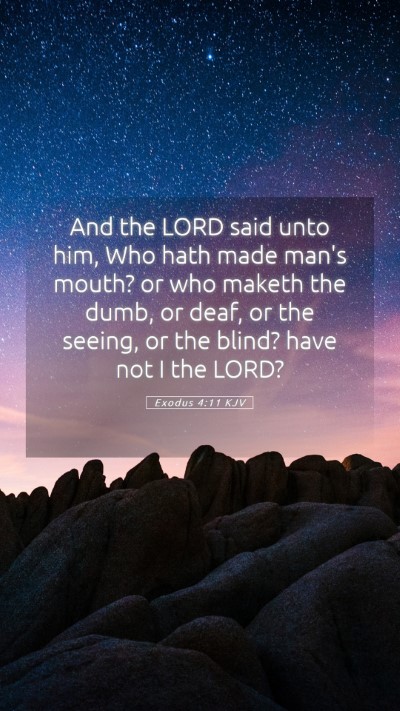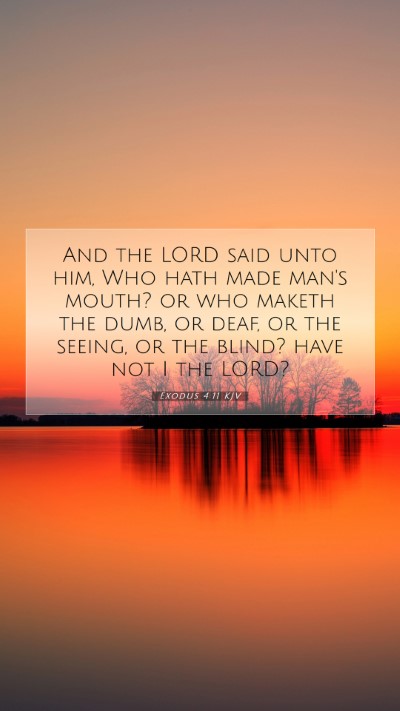Understanding Exodus 4:11 - Bible Verse Meanings and Interpretations
Exodus 4:11 reads: "And the LORD said unto him, Who hath made man's mouth? or who maketh the dumb, or deaf, or the seeing, or the blind? have not I the LORD?" This verse addresses the doubts of Moses regarding his ability to speak before Pharaoh and represents a profound moment of divine reassurance.
Context and Overview
In the preceding chapters, Moses, upon being called by God to lead the Israelites out of captivity, expresses multiple objections to God’s command. Here, in Exodus 4:11, he is reminded of God’s sovereignty over all creation, including human faculties.
Commentary Insights from Notable Scholars
-
Matthew Henry's Commentary:
Henry emphasizes that God answers Moses's reluctance with a reminder of His creative power. God is in control of all, including the abilities and disabilities of mankind. This serves to encourage Moses, showing that if God has chosen him for a task, He will equip him for it.
-
Albert Barnes' Notes:
Barnes points out that this declaration from God not only affirms God’s authority, but also serves as a rebuttal against Moses’s self-doubt. He highlights the transformative nature of God’s calling, indicating that God can enable anyone for the work He has purposed.
-
Adam Clarke's Commentary:
Clarke notes the theological implications of God's question. By indicating that He created human faculties, God calls attention to the fact that Moses's limitations are not barriers to God’s plan. Clarke underscores that God can empower us beyond our perceived weaknesses.
Key Themes and Applications
This verse encapsulates several vital themes for Bible study:
- Divine Sovereignty: God asserts His ultimate control and authority over all aspects of life.
- Human Limitations: Acknowledging our weaknesses is essential; however, we must recognize that God can empower us despite them.
- Faith and Obedience: God’s call requires faith, and our obedience is integral to fulfilling His plans.
Cross References
- Jeremiah 1:6-8 - God reassures Jeremiah of His support despite the prophet's fears.
- Exodus 3:11 - Moses questions his qualifications for God’s command.
- 1 Corinthians 1:26-29 - God often chooses the weak and foolish to confound the strong.
Conclusion
Exodus 4:11 serves as a powerful reminder of God's ability to work through us, regardless of our insecurities or limitations. For those seeking Bible verse meanings, Bible verse interpretations, or understanding Scripture, this verse stands as a testament to the empowering presence of God in our lives.
Further Study Resources
If you are interested in delving deeper into the meaning of Bible verses, consider utilizing various Bible study tools and Bible study resources. Engage with Bible study groups or explore online Bible study courses for greater insights.


